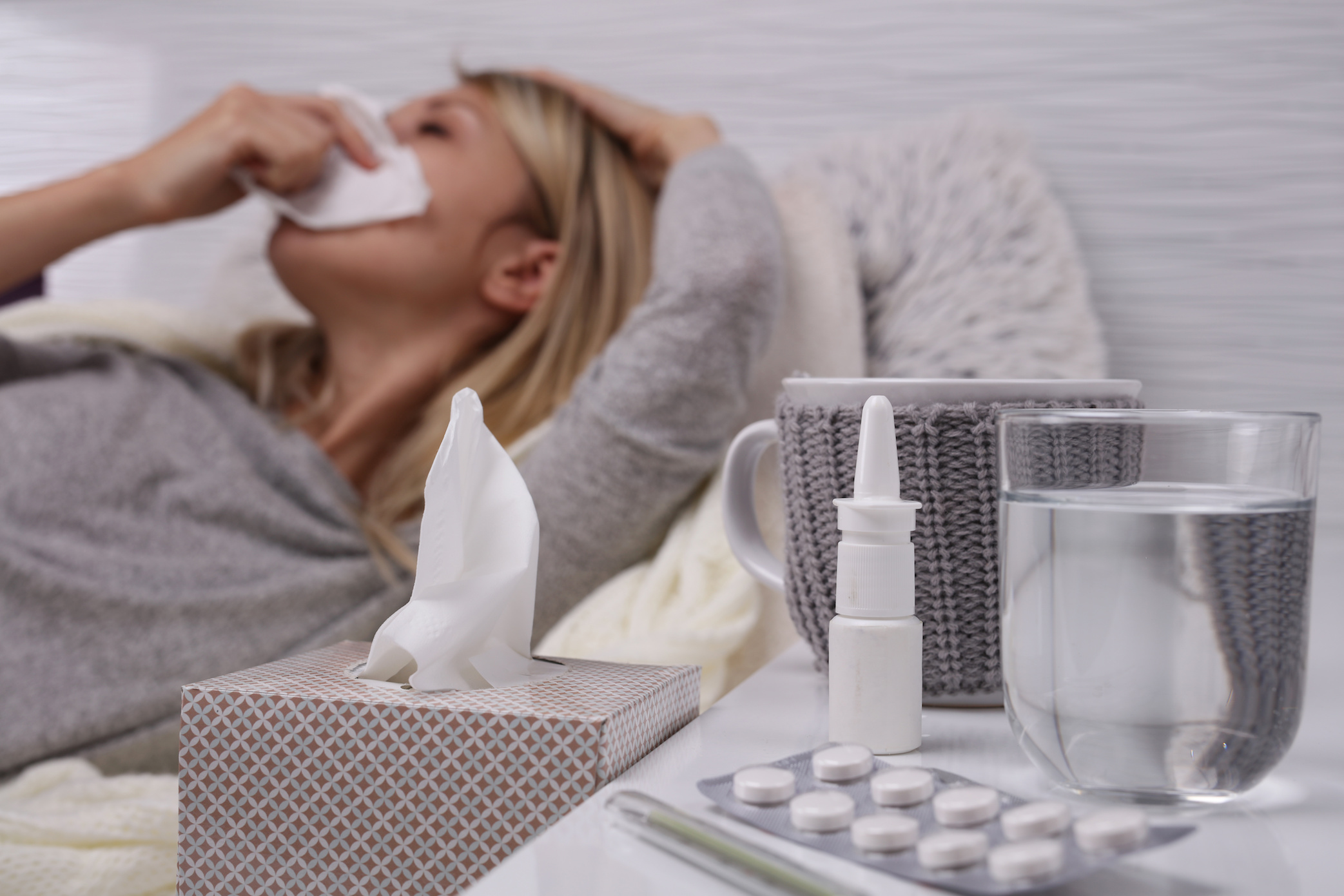You know the obvious: avoid sick people if you don’t want to get sick. But did you know that a person can be infectious a day before the sniffles start? If they don’t know they’re sick yet, how can you fight what you can’t see?
That’s why the name of the game here is prevention. If you keep your guard up through
- Get a flu shot. The CDC recommends it for everyone older than 6 months and especially for people over 65 or those who are pregnant or may have asthma and emphysema.
- Wash your hands often, and for a good 20 seconds. Viruses that cause colds can live on your hands. Remember that after you shake hands or touch a surface that someone with a cold touched before you.
- Know that germs can stick to hard surfaces for hours (like metal handrails and doorknobs and computer keyboards). So wash your hands after touching them.
- Use caution with finger foods at social gatherings.
- Avoid touching your eyes, nose and mouth with unwashed hands. This is how viruses enter your body.
- Stay home when you are sick.
If You’re Traveling
Crowd a bunch of random people, some probably already sick, into the tight quarters of an airplane and germs are spread everywhere. However, there are a few things you can do to defend yourself.
- Give your immune system a boost before your trip. Enhance your diet with extra vitamin C, which can be found in oranges, strawberries and bell peppers. Several studies suggest that a vitamin C supplement can both reduce the frequency of catching a cold and reduce cold symptoms.
- Wait to board the plane. Hang back a bit from the herd of people all trying to be first on. If it means having to pre-pay to guarantee a seat or better spot in the boarding process, it could be worth it. Tightly packed crowds are really not your friends right now.
- Choose a window seat. It will reduce the number of people you’ll be in direct contact with. On the aisle, you’ll be exposed to everyone touching your seat (it’s a habit we all have) and bumping into you.
- Pack disinfecting wipes in your carry-on or handbag. The bathrooms on a plane are subject to mandatory cleaning. The rest of the surfaces are not guaranteed. Now, go ahead and assume the nastiest person ever was sitting in your seat before you, changing diapers on the tray table. Wipe it down like it’s your job, as well as everything else you’ll touch, including your armrest, window shade, and especially the entertainment screen. P.S. Be kind and offer a wipe to the person sitting next to you, too.
- Stay hydrated – and not only by consuming extra liquids. Keep your mucus membranes hydrated too by using nasal spray in the dry airplane air.
- Turn on your overhead vent. It may sound odd but Travel & Leisure magazine recommends it for circulating the air around and moving away any airborne germs that are headed towards you.
Cold v. Flu
How can you tell the difference between a cold and the flu? It’s not always easy to figure out but here’s the general definition:
A cold usually lasts a week to 10 days. It will probably begin with a sore throat and be followed by a runny nose, sneezing and cough.
The flu usually lasts 1 to 2 weeks. Telltale flu symptoms typically include a fever, muscle aches and a cough, in addition to a sore throat, runny or stuffy nose, headache, fatigue, vomiting and diarrhea (common in children).
When Should I See a Doctor?
Definitely call your doctor if…
- your symptoms last more than 10 days
- your symptoms seem unusual or severe
- your sick child is younger than 3 months and has a fever
- you’re at high risk for complications (you’re pregnant, have asthma or heart disease, or you’re over age 65)
If you really can’t tell or you’re feeling rundown, it never hurts to call your doctor and ask. YourTown Health is available to help with advice, care and flu shots at one of our seven locations.

